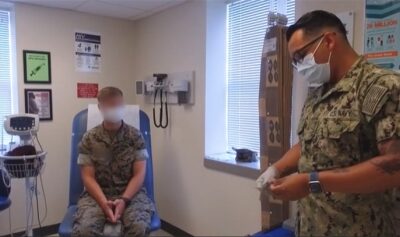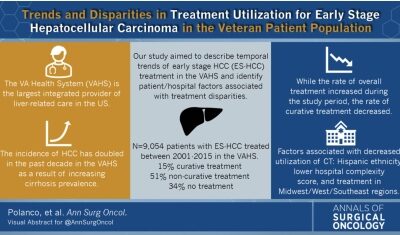VA recently announced that it has awarded $52 million in grants to 80 community-based organizations to deliver or coordinate suicide prevention programs and services for veterans and their family members.
VA Patients Not Told About Risks of COVID-19 Drug Remdesivir Under EUA
VA failed to provide many COVID-19 patients with all the required information when prescribing them remdesivir, according to a recent VA Office of the Inspector General (OIG) report.
Intimate Partner Violence More Common With Veterans, Military Personnel
VA should be doing more to identify and support victims of intimate partner violence (IPV), according to a recent VA Office of the Inspector General (OIG) report that also maintained that programs already in place are inconsistently implemented.
Many Veterans are Hesitant to Seek Help for Sleep Problems, Alcohol Abuse
Military service and trauma have been linked to an increased risk for substance abuse and mental health disorders. Yet research suggests a lack of willingness to seek treatment for these problems keeps many veterans from getting the help they need.
Recommendations Could Standardize Care for VA Patients With AML, CLL
The VA has committed to providing quality oncology care, with the establishment of the National Oncology Program and a system of excellence designed to spread best practices in cancer care to VA facilities around the country.
VA Research Provides Insight into Quality of Life After Blood, Marrow Transplant
Patients with acute myeloid leukemia (AML) face difficult choices if their cancer recurs. Without treatment, survival is a matter of months.
Achieving Treatment-Free Remission in CML: Best Approaches, Best Candidates
In less than two decades, the advent of targeted therapies transformed chronic myeloid leukemia (CML) from a death sentence with a five-year survival rate of just 22% to a chronic condition with five-year survival exceeding 90%.
VA Researchers Develop AI-based Tool to Predict Post-transplant Relapse in AML
Despite advances in treatment, acute myeloid leukemia (AML) remains the most deadly blood malignancy, with a five-year survival rate of 26% for people over age 20.
VA Announces Decrease in Veteran Suicide Rate for Second Year
For the second year in a row, veteran suicides decreased in 2020, and fewer veterans died by their own hand in 2020 than in any year since 2006, according to the VA.
Healthcare Providers Urged to Increase Firearm Safety Counseling With Veterans
Most, 70%, of suicides among U.S. veterans are due to firearm injury. Yet, according to a new study, not enough veterans are taking advantage of the opportunity to discuss firearm safety with their healthcare providers.
Nonprofit Group: VA Undercounted Thousands of Veteran Suicides
The same week that VA announced a decrease in the national veteran suicide rate, early results from an independent study suggested that the department has been drastically undercounting the total number of veteran suicides for years.
Veterans Receiving Cancer Diagnoses Have Increased Suicide Risks
Research has shown that a cancer diagnosis is associated with an increased risk of suicide, which might be attributed in part to factors such as interpersonal struggles, hopelessness, physical pain and strain, financial distress and relationship changes.
Republican Legislators Express Strong Opposition to VA Offering Abortion Services
VA officials believe that the overturning of Roe v. Wade in June and the subsequent enforcement of abortion bans in several states creates a clear danger to the health of women veterans.
New Tool Estimates Age-Specific Prostate Cancer Risk
A multi-ancestry polygenic risk score (PRS) that stratifies prostate cancer risk across populations has been developed. In a recent study, the developers validated the performance of the PRS in the multi-ancestry Million Veteran Program and additional independent studies.
Survival Rates Better for Prostate Cancer With Radical Prostatectomy
Clinicians haven’t had information on the optimal upfront treatment modality for patients with nonmetastatic Gleason Score 9 and 10 prostate cancer (GS 9-10 PCa).
Second Cancer More Common With Radiotherapy for Prostate Cancer
When men are diagnosed with localized prostate cancer, they are often faced with a difficult decision.
PACT Act: Hundreds of Thousands of Veterans Newly Eligible for VA Care
As of the first day this month, the VA expanded and extended eligibility for VA healthcare for specific veterans of the Gulf Wars and post-9/11 era.
High Prescribing of Antibiotics, Opioids Linked In Medical, Dental Providers
Medical and dental providers who are high prescribers of antibiotics are also likely to be high prescribers of opioids, according to a new study.
PTSD Appears to Accelerate Multiple Sclerosis Progression for Veterans
An unfortunate confluence of events puts a significant number of veterans at higher risk of both multiple sclerosis and post-traumatic stress disorder (PSTSD). Agent Orange and other exposures make multiple sclerosis (MS) a presumptive condition for those who have served, while combat experience, higher rates of sexual assault and other factors increase the likelihood of PTSD among veterans.
DHA: Chlamydia Is the Most Common Sexually Transmitted Infection Among Active Duty U.S. Military Servicemembers
Chlamydia is the U.S. military’s most common sexually transmitted infection (STI) among active duty servicemembers, according to 2021 and 2022 reports on STIs by the Defense Health Agency’s Armed Forces Health Surveillance Division.
VA Receives First Doses of Vaccine to Help Combat Monkeypox Outbreak
When the World Health Organization declared monkeypox a public health emergency on July 23, there were more than 4,000 reported cases in the United States. By mid-September, the number of reported U.S. cases had surpassed 24,000.
Matched Siblings Are the Optimal Allo-HCT Donors for MDS Patients
Myelodysplastic syndromes (MDS), a condition linked to contaminated water at Camp Lejeune for some veterans, are the second common indication for an allogeneic hematopoietic stem cell transplant (Allo-HCT.)
Black MDS Patients Appear to Have Better Overall Survival Than Whites
Certain veterans who were stationed at Camp Lejeune, NC, between Aug. 1, 1953, and Dec. 31, 1987, have a presumptive service connection to aplastic anemia and other myelodysplastic syndromes because of exposure to contaminated water.
For the Sixth Year, MDS World Awareness Day Coming Up This Month
The annual MDS World Awareness Day is designed to raise awareness of myelodysplastic syndromes. The rare group of blood cancers occurs when the blood-forming cells in the bone marrow become abnormal.
HIV-Positive Veterans Have Higher Risk of Head and Neck Cancer
Thanks to the use of combination antiretroviral therapy, life expectancy is greater than it has ever been for people living with HIV/AIDS. But with that increase in life expectancy comes an increase in the number of non-AIDS-defining cancers.
Study Finds Significant Regional Variations in Hepatocellular Carcinoma Treatment and Survival Rates Within Nationwide VA Healthcare System
Veteran populations have five times the incidence of hepatocellular carcinoma (HCC)—the most common primary malignancy of the liver, which occurs largely in patients with underlying chronic liver disease—compared to the general population
Glargine, Liraglutide More Effective for Reaching, Maintaining T2D Targets
Clinicians treating Type 2 diabetes have an arsenal of medications to help lower glucose levels in patients with uncontrolled blood sugar. The key question regards which work best to lower glucose levels and keep them low.
Diabetes Genetic Risk Score Linked to Dementia in Some Veterans
Using the VA’s Million Veteran Program data, a new study has determined that a diabetes genetic risk score is associated with all-cause dementia and clinically diagnosed vascular dementia in veterans.
Rural T2D Patients Improved With Remote VA Care
How did a novel approach to provide diabetes specialty team care to rural veterans with Type 2 diabetes (T2DM) affect clinical outcomes and processes of care?
T2D Drugs Didn’t Differ in Preventing CV Complications
Not many studies have looked at the comparative effectiveness of commonly used glucose-lowering medications, when added to metformin, on preventing microvascular and cardiovascular disease outcomes in Type 2 diabetes.





